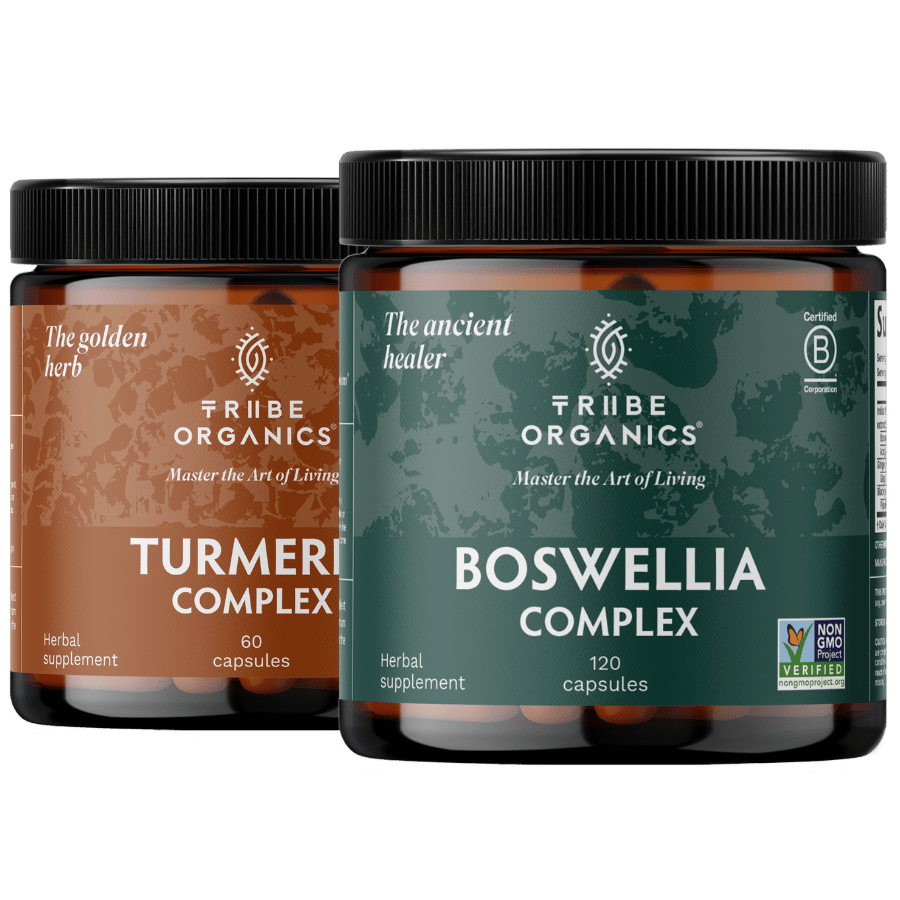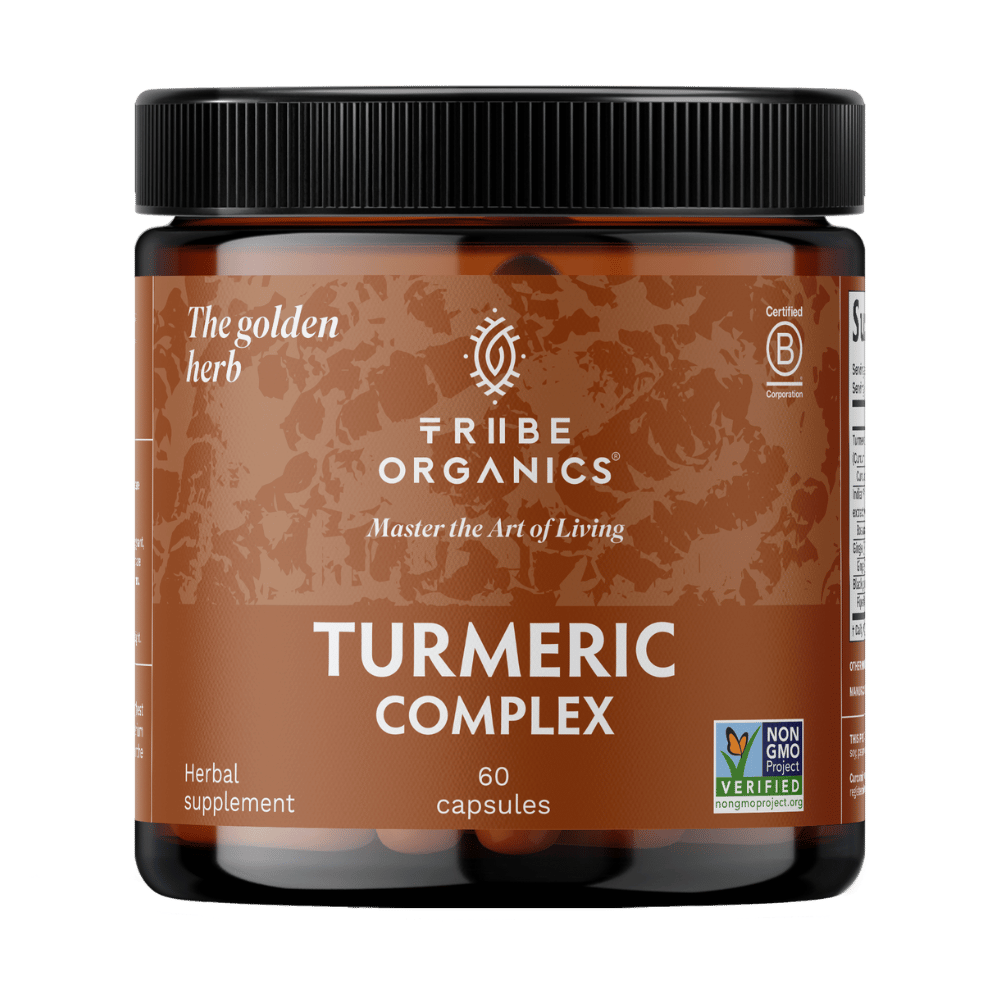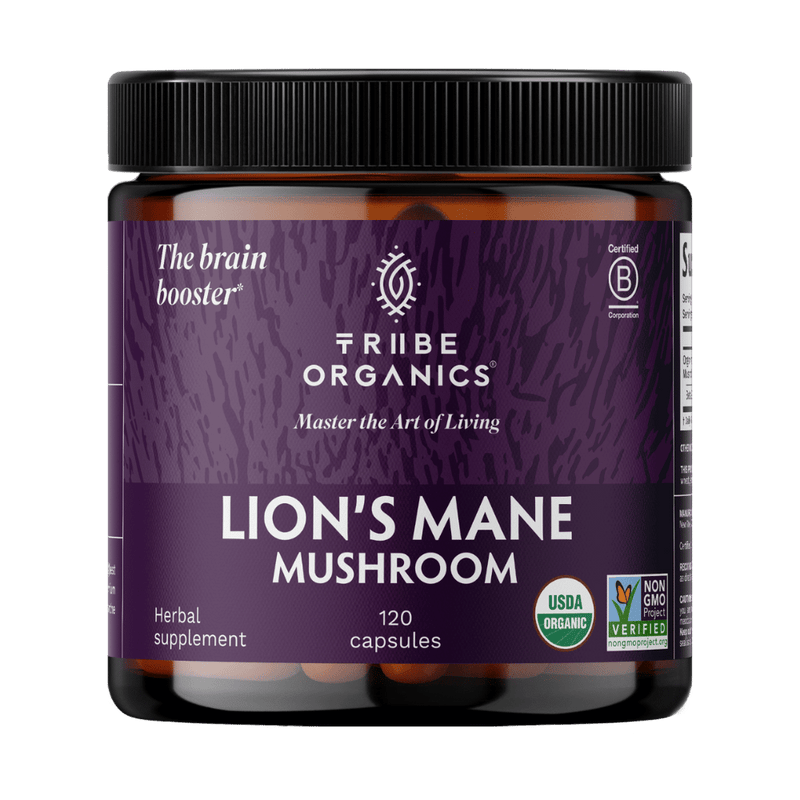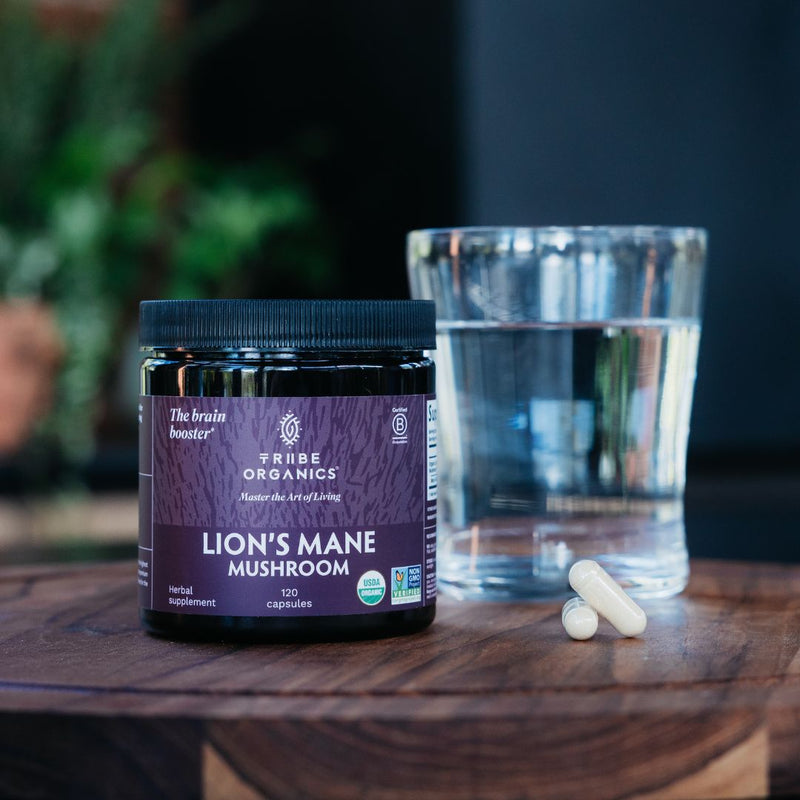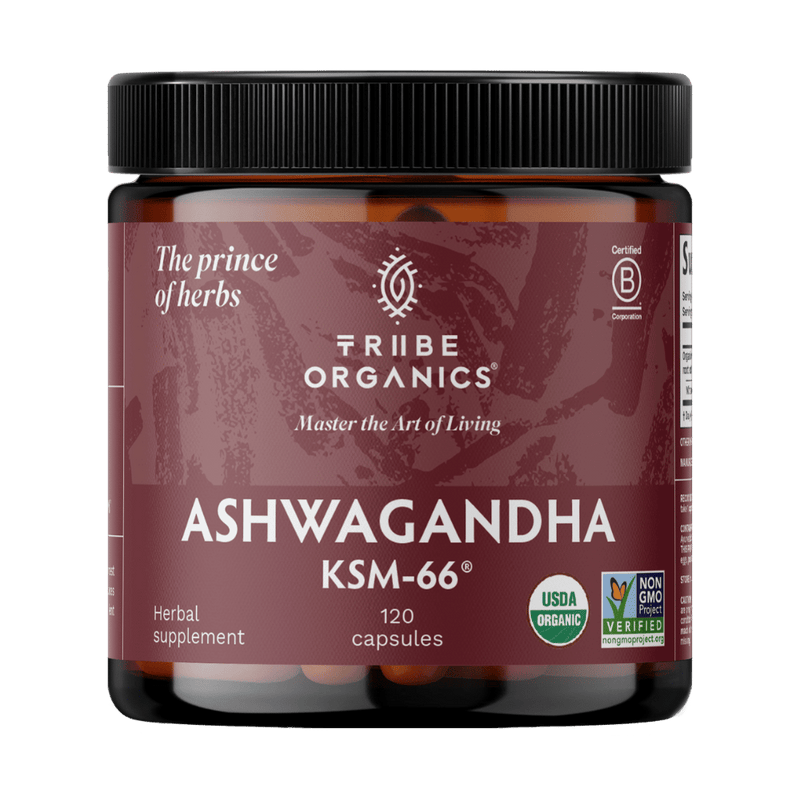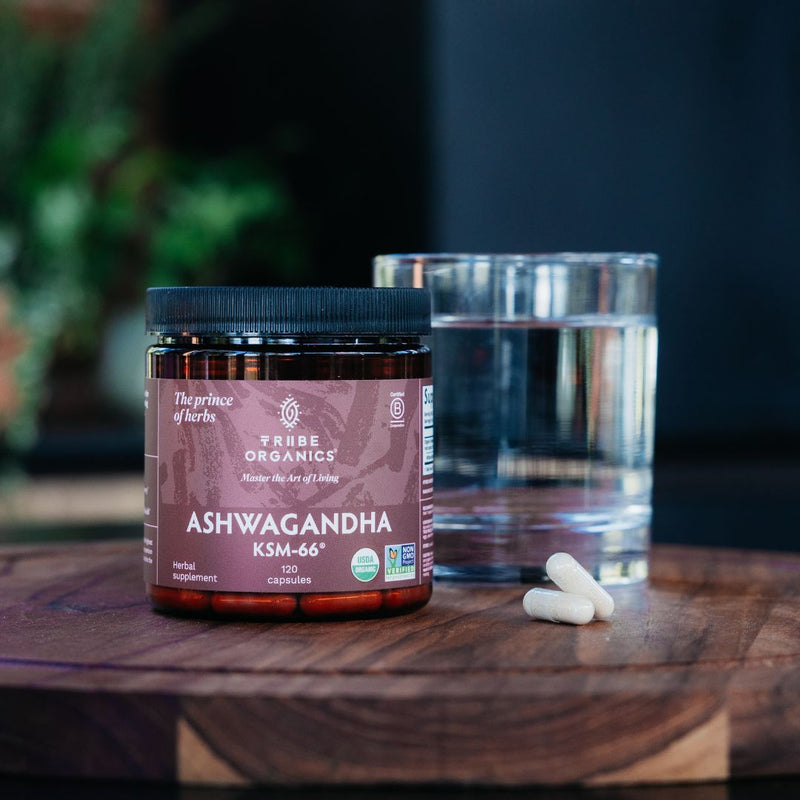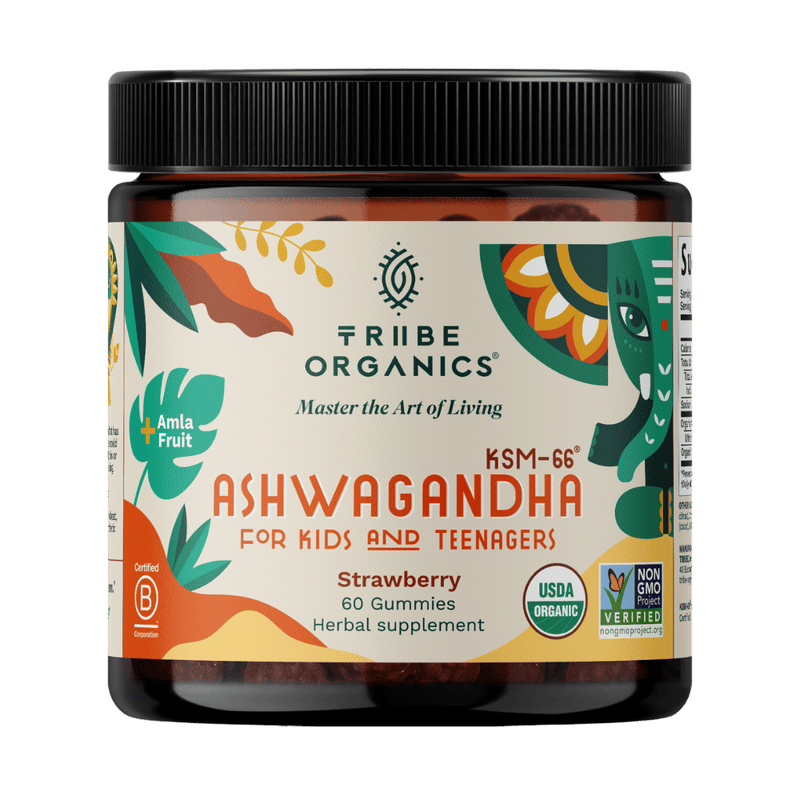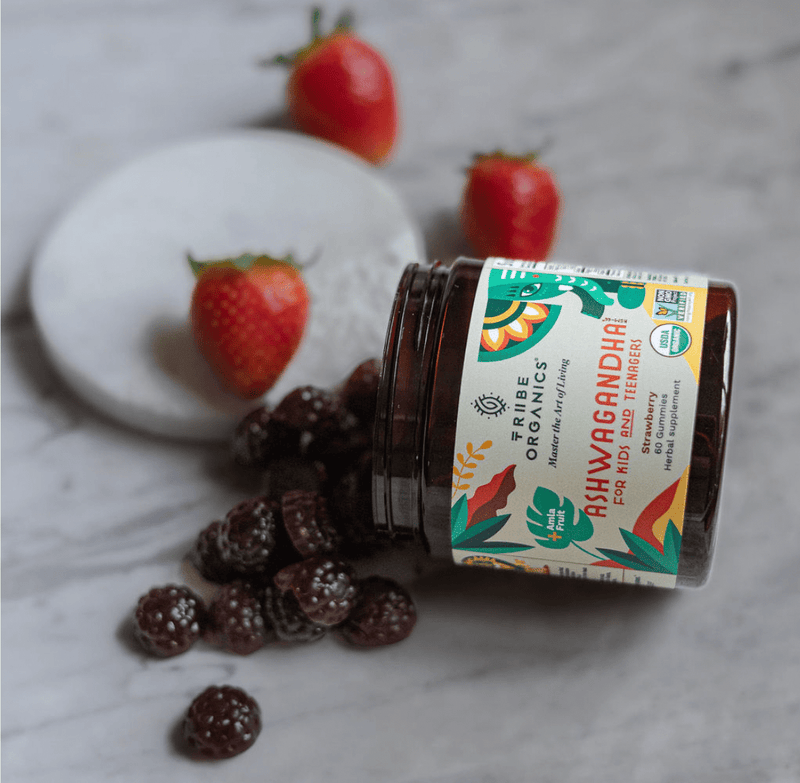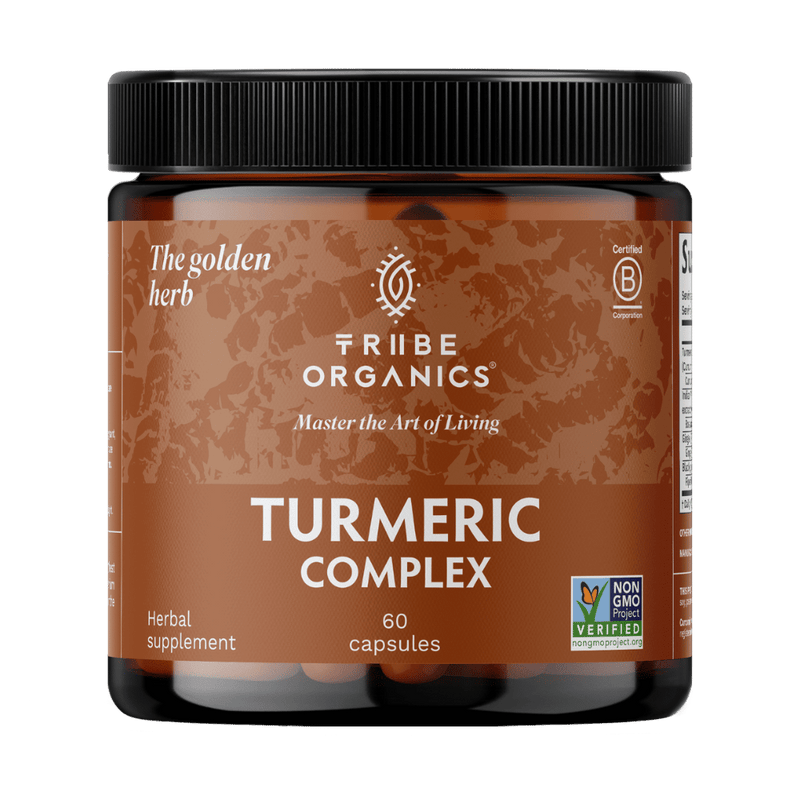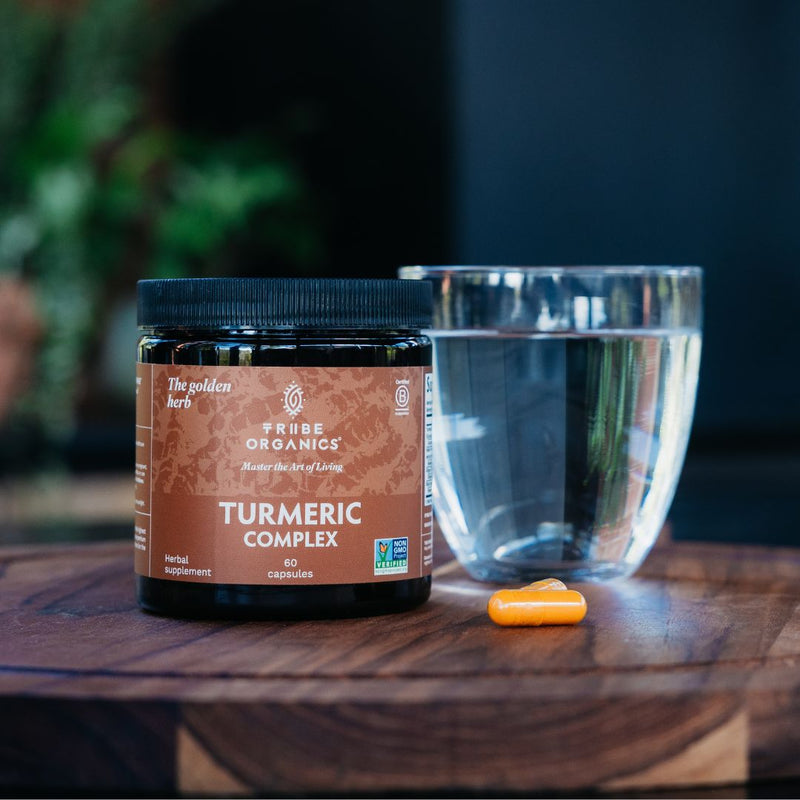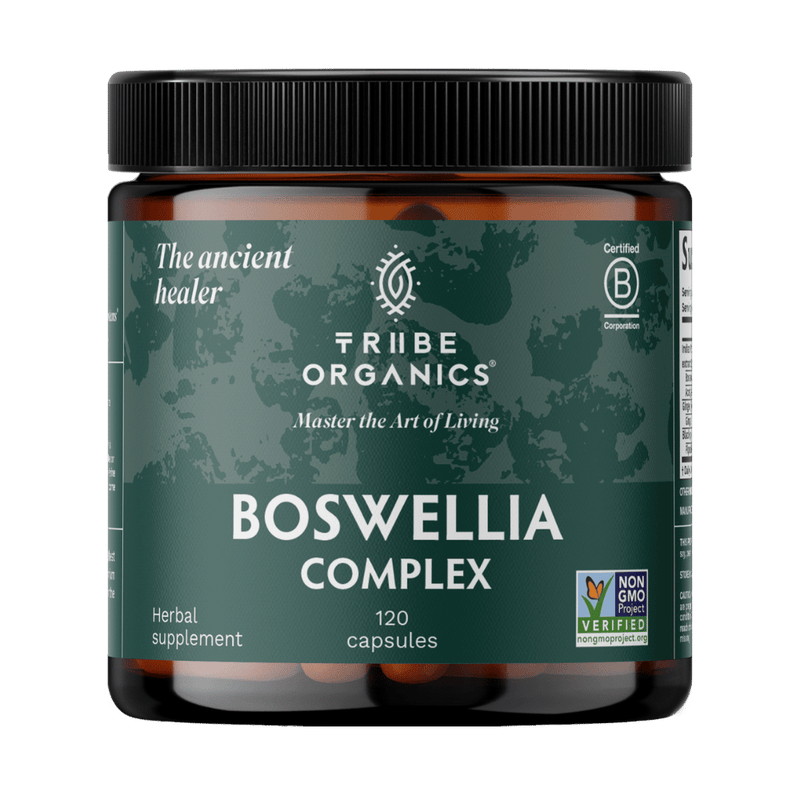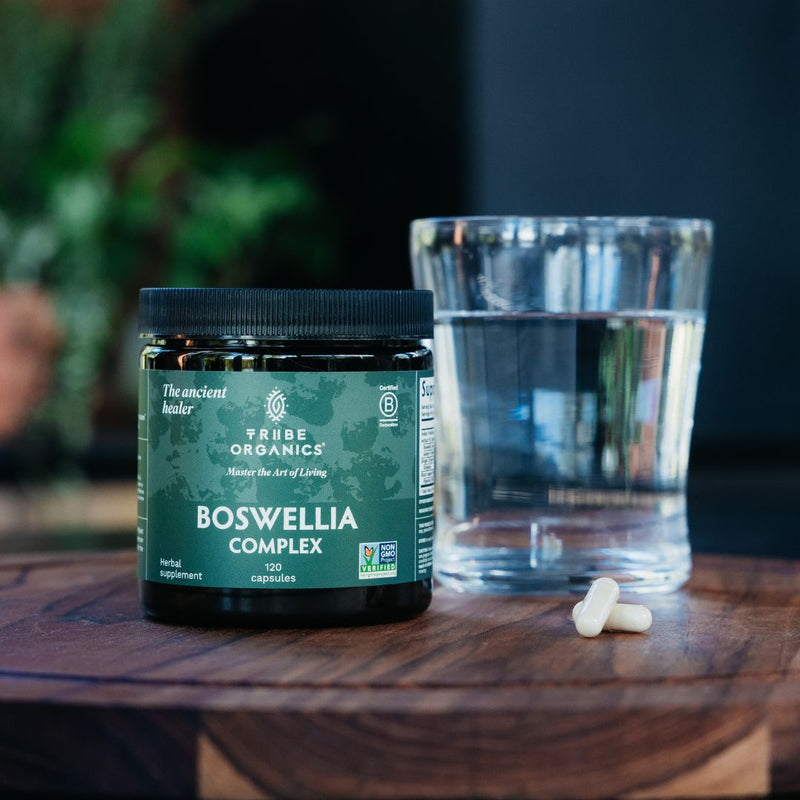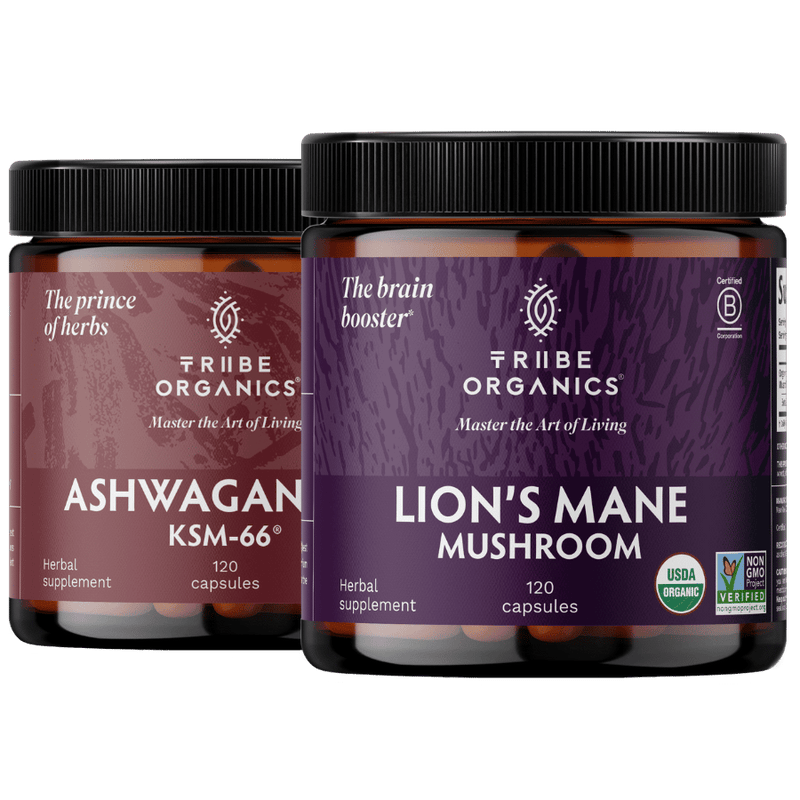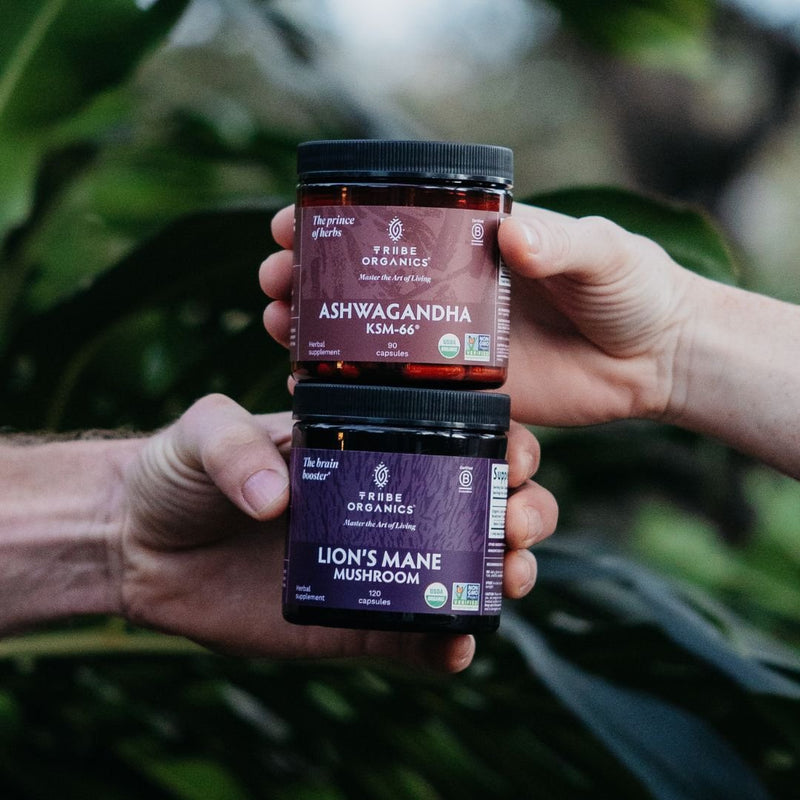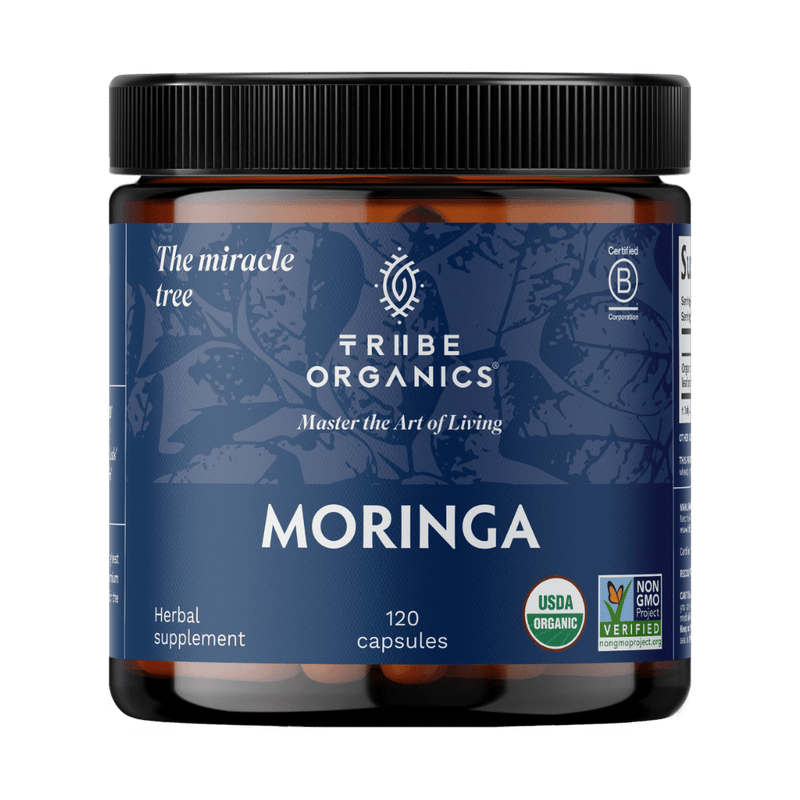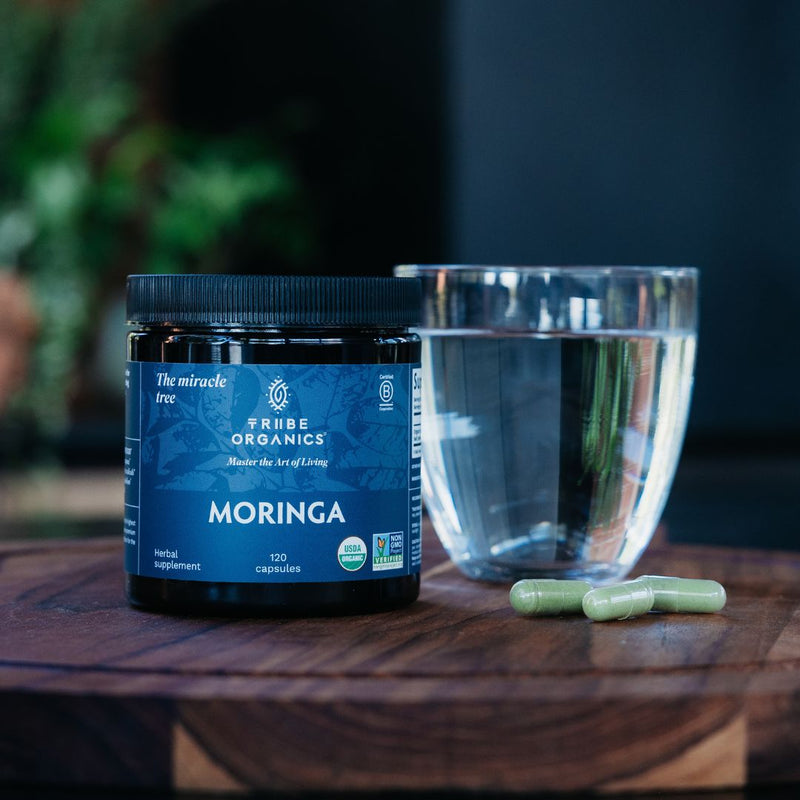The health benefits of turmeric are only just now reaching the modern western world in many ways. It is only within the past decade or so that medical researchers across the EU and N. America have been examining something that Asia has known for millennia… Turmeric is great for treating a lot of ailments.
Turmeric has been used in ayurvedic medicine for thousands of years to treat inflammation and support holistic health.
Turmeric, a member of the ginger family (Zingiberaceae), has been known to react to physical aches, pains, and chronic issues. It can reduce inflammation, regulate blood pressure, and help with a whole host of other bodily problems. Turmeric's compounds are also being studied for their potential to protect against neurodegenerative diseases due to their anti-inflammatory and antioxidant properties. But, how does it stack up when it comes to treating some not so obvious health related issues? Can turmeric be used to treat anxiety?
What is Generalized Anxiety Disorder?
For many, anxiety is something that is very often difficult or impossible to define. It is a mental battle that millions around the world face regularly, if not every single day. It causes racing heart rates, heavy sweats, feelings of intense dread and panic, the list goes on. But, what exactly is anxiety at its core?
Anxiety is an emotional response to certain situational triggers. All of us can feel it, even those who don’t suffer from generalized anxiety disorders. You may feel anxious about your first day at a new job, or perhaps anxious about a first date. These are completely normal and don’t need to be worried about too much.
The real issue with anxiety arises when it begins to persist and manifest regularly over seemingly innocuous triggers. Those who suffer from anxiety disorders can find themselves feeling a deep sense of panic and anxiousness for no reason whatsoever. This is the mind’s fight or flight response being flipped by deep memories of past trauma, chemical imbalances, or subconscious triggers being perceived. Anxiety often co-occurs with depressive disorders, and addressing both conditions is important for comprehensive mental health treatment.
This is the type of anxiety that researchers aim to test and treat with natural compounds in turmeric. Initial evidence for turmeric's effects on anxiety comes from animal studies investigating its impact on mood and neurobiology.
The Science Behind Curcumin
Curcumin, the powerful bioactive compound found in the turmeric plant, has become a focal point in modern research for its potential to support mental health and treat various mental disorders. Scientists have been particularly interested in curcumin’s effects on major depressive disorder (MDD) and generalized anxiety disorder (GAD), two of the most common psychiatric disorders affecting millions worldwide.
Research suggests that curcumin’s anti-inflammatory properties are central to its therapeutic potential. Chronic exposure to inflammatory cytokines, such as tumor necrosis factor (TNF), has been linked to the development of depressive symptoms and anxiety symptoms. Curcumin treatment appears to counteract this inflammatory response, helping to restore balance in the brain and body. In fact, a systematic review of placebo-controlled studies found that curcumin administration led to a significant reduction in depressive symptoms among patients with major depression, with results comparable to those seen with selective serotonin reuptake inhibitors (SSRIs), which are commonly prescribed antidepressant medications.
The effects of curcumin on anxiety disorder have also been explored in depth. A recent meta-analysis of clinical trials showed that curcumin supplementation resulted in a significant effect on reducing anxiety symptoms in individuals with generalized anxiety disorder. A pooled analysis further quantified this effect, showing a standardized mean difference (SMD) of −1.56, highlighting curcumin's potential as a therapeutic option. These anti-anxiety properties are thought to be related to curcumin’s ability to regulate the hypothalamic-pituitary-adrenal (HPA) axis, a key system involved in the body’s response to chronic stress. By modulating this axis and reducing the production of pro-inflammatory cytokines, curcumin helps to ease the burden of chronic stress and anxiety.
Preclinical studies using animal models have further demonstrated curcumin’s antidepressant effects. For example, curcumin administration has been shown to increase serotonin levels in the frontal cortex, a brain region crucial for mood regulation. Additionally, curcumin promotes synaptic plasticity and reduces microglia activation, both of which are important for maintaining healthy brain functions and preventing the neuronal structural changes often seen in depression and anxiety.
Curcumin’s mechanisms of action are complex and multifaceted. It interacts with various transcription factors and signaling pathways, including the glucocorticoid receptor, which plays a vital role in regulating the HPA axis and the body’s response to stress. Its anti-inflammatory and antioxidant properties help to reduce the impact of inflammatory markers and support overall brain health. Additionally, curcumin's absorption can be enhanced by taking it with piperine, which inhibits drug metabolism and increases bioavailability.
Beyond its effects on mood disorders, curcumin may also offer benefits for other mental health conditions and for diabetic patients, as it has been shown to improve insulin sensitivity and lower inflammatory markers in the systemic circulation. While most human studies and clinical trials have focused on depression and anxiety, future studies may reveal even broader applications for curcumin in treating patients with a range of psychiatric disorders.
In summary, the science behind curcumin highlights its promise as a natural, alternative medicine for supporting mental health. While more research is needed to fully understand its mechanisms and to confirm its efficacy in larger, more diverse populations, current evidence from systematic reviews, meta-analyses, and clinical trials points to curcumin as a valuable tool in the fight against anxiety, depression, and other mental disorders. However, studies have suggested conflicting results on the effectiveness of curcumin for anxiety relief, indicating a need for further research to solidify its role in mental health treatment.
Treating Anxiety With Turmeric's Anti-Inflammatory Properties
Turmeric itself is a plant that is part of the curcuma longa family (the same family as ginger). It is rich in vitamins and other healthy compounds that make ingesting it not only delicious, but beneficial. The most crucial of these compounds is Curcumin.
Curcumin is the compound that medical research has found carries the most benefits for treating health related issues–both physical and mental. It is the study of Curcumin ingestion that has led to incredible revelations about anxiety treatment, depression treatment, and its effects on depressive like behavior and depressive like behaviors in animal models. The recommended dosage of curcumin for anxiety relief is between 150-250 mg per dose, which has been shown to be both safe and effective in clinical studies.
You see, research shows that Curcumin helps to increase levels of dopamine and serotonin in the brain, specifically helping to increase dopamine levels in key brain regions involved in mood regulation. These are both hormone compounds that deal with the mind’s ability to perceive happiness, alertness, joy, engagement, etc,. These are essentially the ‘feel good’ chemicals that the brain produces daily. Research studies often include a control group and a curcumin group to compare outcomes, and significant differences have been observed between groups in placebo controlled studies and placebo controlled trials. Statistical analysis is used to validate these findings, and the Beck Depression Inventory is often used to assess depressive symptoms in clinical studies.
When levels of dopamine and serotonin are down, feelings of depression and anxiety will begin to rise. So it shows that raising these levels in the brain can reduce anxiety and depression drastically. Curcumin has also shown potential benefits for atypical depression and for depressed patients, with positive effects observed in both preclinical and clinical research.
Similar studies have also shown that Curcumin can help to protect the brain from harmful anxiety causing sulfates. These are compounds that can be found in various foods, and raise toxicity levels in the brain that hamper brain function. These sulfate preservatives are hard to avoid, but protecting yourself against them can actually be done with Curcumin. Animal study designs have shown curcumin's effects on depression like behavior, and vitro studies demonstrate curcumin's ability to modulate biological pathways related to depression.
The evidence for how effective Curcumin is in treating anxiety is pretty overwhelming. In fact, there is actually research to show that turmeric Curcumin might be more effective than Prozac when treating anxiety and depression symptoms. This is pretty incredible to believe when you consider how easily Curcumin can be administered into the system daily. Curcumin influences mrna expression related to stress and inflammation in brain regions such as the medial prefrontal cortex, and glucocorticoid receptor activation plays a role in modulating inflammatory processes and the immune system, which are relevant to mood disorders. Inflammatory processes and immune system dysregulation are key factors in anxiety and depression.
So, the evidence is all there. Anxiety is something that many of us face daily and have to struggle through with harsh antidepressants. But, there is a chance that turmeric Curcumin could relieve a lot of these symptoms through regular ingestion. Additionally, physical activity, alongside curcumin supplementation, may further support mental health.
How to Dose Curcumin Treatment for Anxiety
When it comes time to try and dose out your turmeric Curcumin, you have to understand the difference between the compounds. Turmeric itself is the actual plant ground into powder form. Curcmin is the compound which exists naturally within the plant. This is important to know before you begin taking your turmeric supplements or adding turmeric powder into your diet.
Most clinical trials referenced for turmeric and anxiety tested Curcumin doses between 250mg-1,000mg. This was proven to be safe and effective to take daily for extended periods of time (4-6 week periods).
It is important to note that only about 3% of turmeric powder is Curcumin by volume. So if you take 1,000mg of turmeric powder, you are only dosing about 30mg of Curcumin. However, Curcumin supplements will generally contain between 150-250mg of Curcumin per capsule.
It's always important to consult a physician before you introduce any new compound into your daily diet. This is because there can always be a risk of negative side effects even with a natural compound like turmeric Curcumin. Once you have been approved by a medical professional, you can begin taking turmeric Curcumin as advised.
It is important to remember that it is wise to start out small, and work upward. Start with 150mg of Curcumin per day and see how you feel after several weeks. If there is no noticeable change, increase the dosage by 50-100mg until you reach the spot where you feel it helping. Regular curcumin supplementation may take 4-8 weeks to have noticeable effects on anxiety or depression, so patience is key when evaluating its benefits.
Final Thoughts: What Research Suggests
Anxiety is a monster that rages inside, and one that no one deserves to face alone. Treating anxiety and depression can feel like a losing battle, but centuries old methods have once again proven beneficial. Turmeric Curcumin may not be a miracle cure, but it is helpful in suppressing feelings of anxiety. That alone is pretty amazing.
Shop best sellers
Explore our collection of favorite items that have gained popularity for their quality and satisfaction.

